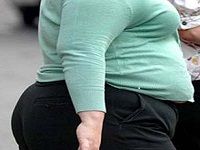Rapid Weight Loss Predicts Gallstone Formation After Bariatric Surgery
Though bariatric surgery offers obese patients the opportunity to take off and keep off excess weight, those who experience rapid weight loss after surgery have a greater risk of developing gallstones.

Some experts estimate that one-third of bariatric surgery patients develop gallstones or sludge in the first year post-surgery. One hypothesis is the low-calorie diets required after gastric bypass contain insufficient fat to induce gallbladder contraction and emptying, which causes bile stagnates and gallstones to form.
To identify the predictive factors for gallstone formation after bariatric surgery, a team of researchers from the Tanta University Hospital in Egypt examined the medical files of all patients who underwent bariatric surgery at their institution between March 2003 and October 2010. After excluding patients who had prior and concomitant cholecystectomies, they compared individuals who developed post-surgical gallstones to those who did not.
Of the 135 patients who were included in the study, 13 patients had already undergone cholecystectomy before surgery, and 22 patients were diagnosed with cholelithiasis during the pre-op workup and then underwent concomitant cholecystectomy. Among the remaining 100 patients, 19 developed gallstones after surgery, though only 8 had clinical symptoms. The mean time to gallstone development was 13.2 months.
The researchers said the incidence of gallstones was lower than they expected, and much lower than what similar studies have reported. However, they noted that their hospital tends to use restrictive gastric operations like vertical banded gastroplasty and sleeve gastrectomy more often than Roux-en-Y (RYGBP) gastric bypass operation, while other studies tended to examine RYGBP operations.
As both groups were similar in terms of age, sex, preoperative body mass index (BMI), and surgery type, the only difference between the 2 populations was the fact that patients who formed gallstones experienced significantly higher excess weight loss compared to those without gallstones. Therefore, rapid weight loss was deemed the best predictor of gallstone formation.
